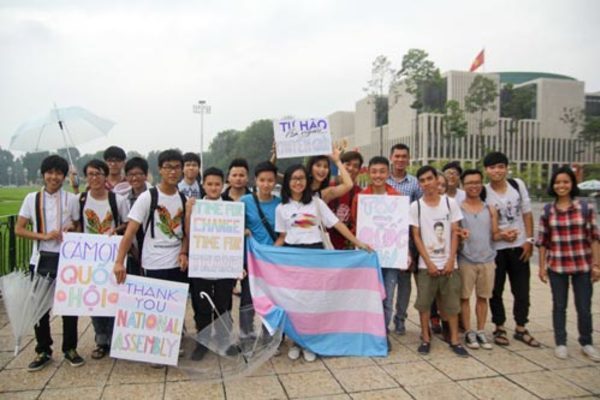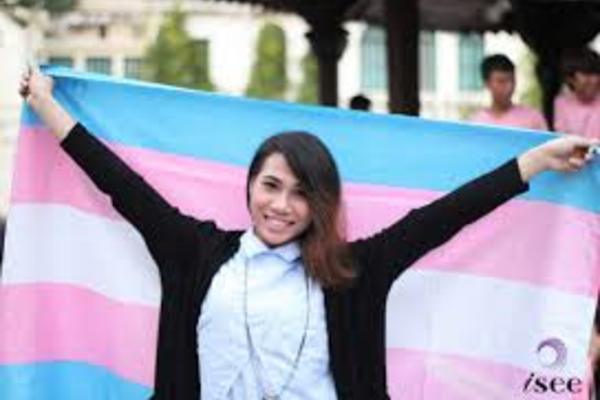 |
|
The National Assembly's adoption of the 2015 Civil Code that allows citizens to carry out sex change, gender recognition after transgender surgery, and create favorable conditions for transgender people to change civil status, identity ... is considered a long step to ensure equality for the transgender community.
|
Along with that Vietnam has issued many regulations that recognize and allow transgender surgery, facilitating transgender people to recognize their real sex.
The National Assembly's adoption of the 2015 Civil Code that allows citizens to carry out sex change, gender recognition after transgender surgery, and create favorable conditions for transgender people to change civil status, identity ... is considered a long step to ensure equality for the transgender community.
It has been 4 years since that time, the transgender community is still waiting for a law to realize their rights.
According to plan, the draft Law on Gender Transition must be drafted by the Ministry of Health for promulgation in 2019 or 2020. However, so far this draft law still has some important points under discussion because of different views on these issues.
For example, Point 5 of Article 2 of the draft law stipulates: "Medical interventions for sex change are one or the whole process from biological hormone treatment to breast surgery, genital surgery to change the sex that is different from the biological gender."
"This provision may lead to the risk for many transgender people in Vietnam as they cannot benefit from this draft law for a number of reasons: unaffordable to pay for the whole process of medical interventions, some people not healthy enough to use hormone or get surgery," said Ms. Dinh Thi Thu Thuy, from the Legal Department of the Ministry of Health.
Article 37 of the 2015 Civil Code that took effect in January 2017 provides: "The sex change is performed according to the provisions of the law". Clause 2, Article 14 of the 2013 Constitution says: "Human rights and civil rights can only be restricted in accordance with the law in case of necessity for reasons of ... social ethics, public health".
Other examples include: Clause 2 of Article 2, Clause 1 of Article 3 of the 2015 Civil Code stipulate equal rights, no discrimination; Decision No. 243/QD-TTg dated February 5, 2016 of the Prime Minister promulgating the Plan for implementation of the Civil Code, which assigns the Ministry of Health to study and propose the development of legal documents on sex change...; the 2015 Civil Code was passed by the 13th National Assembly on November 24, 2015 and took effect on January 1, 2017, Article 37 states: "The change of sex is carried out according to the provisions of the law".
Although Vietnam has allowed gender change since January 1, 2017, specific regulations on the subjects for sex change, the hospitals allowed to perform transgender surgery, the transgender process, the procedure for recognizing transgender people to... have not been specified yet.
In addition, Clause 2 of Article 2 of the 2015 Civil Code also stipulates: “Civil rights can be restricted only in accordance with the law in case of necessity for reasons of national defense, national security and social order and security, social ethics, community health”. Clause 1 of Article 3 of the Civil Code 2015 stipulates: “All individuals and legal entities are equal, it is not allowed to take any reason to discriminate; equally protected by laws regarding personal rights and property”.
 |
|
Only when there is a legal corridor then transgender people have the opportunity to live equally, have the right to marry and enjoy happiness in a society in which they are recognized. Illustrative image.
|
It is estimated that Vietnam currently has about 400,000 transgender people. Social, cultural and legal barriers are putting transgender people into vulnerable groups. A study of transgender women living and working in Ho Chi Minh City found that 83% of transgender communities were ridiculed, 45% of transgender communities were denied from employment due to discrimination based on gender identity, 23% were forced to have sex, 16% said that they had been subjected to sexual violence and 13% made a living by sex work.
“Only when there is a legal corridor then transgender people have the opportunity to live equally, to have the right to marry and to enjoy happiness in a society in which they are recognized. That future depends on the community, the Ministry of Health, which is in charge of drafting the Law on Gender Change. The psychological barriers they are, have been and will overcome but will the legal barrier be in favor of the voices of transgender people, enable them to be equal in society?"- Ms. Thuy questioned.
Tran Hang
 The Vietnamese society in recent years has taken a more open view of transgender people.
The Vietnamese society in recent years has taken a more open view of transgender people.